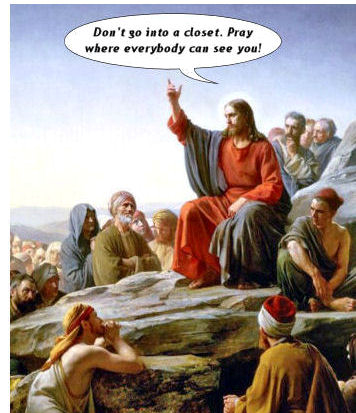
It’s May 30, 2014, a good time for an end-of-the-month review.
(A side-note: This review was aided and abetted by The Scribe’s preparing a “Volume 1” collection of blog-posts, for both a paperback book and e-book version. So if all goes according to plan, that Volume 1 will be followed by other volumes as well…)
For starters, and as noted in the “About” page, this blog focuses on Jesus’ “Big Three.”
First, He promised He would never turn away anyone who came to Him. (John 6:37.) Second, He said He wanted His followers to lead a life of abundance; “My purpose is to give life in all its fullness.” (John 10:10.) Third, Jesus expects that those who believe in Him will do greater works and perform greater miracles than He did. (John 14:12.)
In turn a main theme of this blog is that you simply can’t fulfill those promises if you have a closed mind: “this Blog is about reading the Bible with an open mind. Period.”
The pay-off for all this work is also pretty simple:
…the discipline of regular Bible-reading could lead to a capacity to transcend the painful and negative aspects of life, and the ability to live with “serenity and inner peace.” On the other hand, the discipline could also lead to a your developing a “zest, a fervor and gusto in life plus a much higher ability to function.”
See Some Bible basics from Vince Lombardi and Charlie Chan, which added that in order to help us out, Jesus provided a kind of “Cliff’s Note” summary of the basic message of the Bible: “You shall love the Lord your God with all your heart, with all your strength, and with all your mind. This is the first and great commandment, and the second is like unto it: you shall love your neighbor as yourself. On these two commandments hang all the Law and the Prophets.

Next, the blog-post Spiritual boot camp indicated that the process of growing – spiritually or otherwise – presupposes your making a number of failures along the way, and indeed that overcoming those failures is a major part of becoming “all that you can be…”
“You will make [mistakes] anyway and will be much more comfortable – and get along better with this exercise – if you give yourself permission in advance…” Again and again, gently but firmly, the [practitioner] brings himself back to the discipline. With each slip-up or mistake, “you should say the equivalent of ‘oh, that’s where I am now” [and] to “bind ourselves with humor and compassion at our own lack of discipline…” But could that idea apply to each and every Pilgrim on his or her quest to reach God?
“So maybe the ‘good Christian’ should also begin by knowing he’s trying to do something he knows is impossible, physically, emotionally or spiritually. No matter how hard we try, we can never, for more than ‘one brief shining moment,’ love God with all our heart, mind and soul. Nor can we, for more than a moment, fulfill the Second Great Commandment, to love even our most obnoxious neighbors as ourselves.
“But we try anyway, and maybe in the process we become more adept at living life in all its abundance, just like Jesus promised in John 10:10…”

The “review” image is courtesy of http://cdn-media-1.lifehack.org/wp-content/files/2012/07/weekly-review.jpg.
The Cliff’s note image is courtesy of Cliffs Notes – Wikipedia, the free encyclopedia.
The “Army” image is courtesy of http://www.toywonders.com/productcart/pc/catalog/aw30.jpg.
See also Slogans of the United States Army – Wikipedia, the free …, which said “be all that you can be” was the recruiting slogan of the Army for the 20 years from 1980 to 2001. But see also The Army’s “Be All You Can Be” Campaign – Armed Forces & Society, which noted a certain “disconnect” between potential recruits and those who had already enlisted:
[T]here is a wide gap between the promises of Army advertising and the actual performance of the Army in keeping its promises. This perception was expressed by many soldiers as disillusionment, frustration, and anger. The advertisements appear to damage soldier morale, commitment to the military, and reenlistment potential. For both ethical and pragmatic reasons it is suggested that future advertising should be designed with a concern for both effectiveness and honesty…
There’s no doubt a valuable lesson there somewhere…













